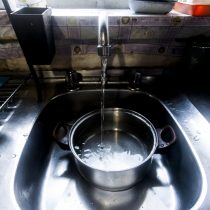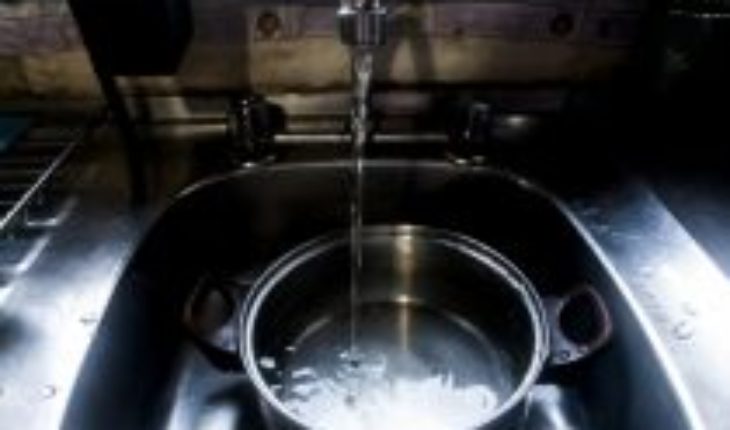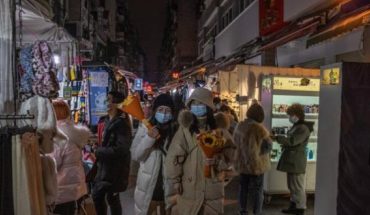
As the COVID-19 pandemic continues to spread, the Ministry of Health, echoing WHO recommendations, has noted that one of the cheapest, simplest and most important ways to prevent contagion is to wash your hands frequently with water and soap. However, the most basic of pandemic prevention measures is a challenge for a significant number of people in the country, which highlights the sustained and structural problems that come with societies like ours.
In Chile, water scarcity affects about one million people who today do not have secure access to such a life-critical good. Different communes in the 10 regions most affected by water scarcity are supplied by cistern trucks, receiving only 50 liters of water a day with a frequency of distribution that can be daily, weekly or up to 15 days, depending on the accumulation systems and distances from different locations. According to figures from 2017, the number of people living in this situation reached 400 thousand in that year, being a problem that, far from finding a solution, has only deepened to this day.
It is clear then that even under “normal” conditions, that is, without the presence of a pandemic that requires further hygiene, these people have difficulty performing tasks as daily as cooking, brushing their teeth and, of course, wash your hands. Agencies such as UNICEF recommend hand washing frequently and lasting at least 20 seconds. There is no doubt that such recommendations should be addressed, however, according to government figures, it is 12 litres of water that emanate from an open key for one minute, so it can only be useless advice for those who , limited to consuming 50 litres per day, do not have access to water on a regular basis, let alone in sufficient quantities.
As a result, people deprived of water and sanitation in our country are more vulnerable to the spread of COVID-19 and will find it more difficult to take steps to protect themselves and their close family nucleus. But this is not new: people deprived of water already get sick because of it. It is known that poor sanitation, insufficient quantity and questionable water quality – as is the case with informal sources such as cistern trucks – are related to the transmission of diseases such as cholera, dysentery, hepatitis A and typhoid fever.
The question, then, comes on its own: how does the state respond to this?
Every day, families who receive water supplies by neighbouring trucks are forced to supplement their supply by buying more water, because simply 50 litres per person is not enough. And according to a study by Fundación Amulén, poor families of water already pay more expensive the liter than those with a drinking supply by formal networks in their homes (buying water canisters the value per liter is $150 versus the $0.36 worth the liter of water pipe supplied by a healthcare company). But is this different now, with a pandemic to take care of? Although we would expect it to be, to tell you the truth, it is not.
Even in a context where there is a strong call to wash its hands, to stay in the house and to hygienize more than normal, the Chilean state has not been able to modify its “narrow” framework of action on waters: even under a declaration of a state of catastrophe , where property rights can be temporarily suspended, the problem of access to water is a solution, as the precious resource remains in the hands of the same families and businesses, leaving the most vulnerable to their fate.
Mentioning the status of a state of catastrophe is not anthoxified: according to article 43 of our Constitution, as freedoms of assembly and locomotion are restricted, it is possible to “establish limitations on the exercise of property rights and adopt the extraordinary administrative measures that are necessary for the early restoration of normalcy in the affected area.” Could existing property rights over water be suspended, even temporarily, to supply the inhabitants of the territories affected by the shortage? It seems so. If constitutionally permitted, then it would only detract from political will, but unfortunately, it seems to lie much of the problem.
However, for a significant number of people in the country, washing hands is not simple or inexpensive, even under emergency conditions such as the one we are currently facing. The Government, for its part, still does not consider the particular impact of COVID-19 on the population that lacks sufficient access to water, with some Biobío mountain rangers required to request an increase in the delivery of water to the Regional Government communes without supply, since, clearly, the 50 litres per day that families receive are insufficient to deal with the health emergency that is going through the country.
In short, while some can’t wash their hands, others seem to know how to do it very well.
The content poured into this opinion column is the sole responsibility of its author, and does not necessarily reflect the editorial line or position of El Mostrador.





